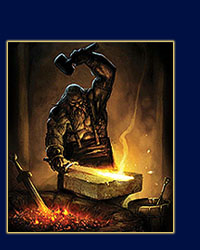 When I was in fifth or sixth grade, I learned the word vulcanization. It had to do with a heat process involving the manufacturing of rubber tires, usually involving adding sulfur to the mix. The word was derived from Vulcan, the Roman god of fire, from which the word volcano also evolved.
When I was in fifth or sixth grade, I learned the word vulcanization. It had to do with a heat process involving the manufacturing of rubber tires, usually involving adding sulfur to the mix. The word was derived from Vulcan, the Roman god of fire, from which the word volcano also evolved.
Thus, I was somewhat confused when I started watching the original Star Trek television series. I was not a big enthusiast initially, but my father was. The first officer was a character named Spock, not to be confused with the then-famous pediatrician Dr. Benjamin Spock.
This Spock was part Vulcan and part earthling, AND he was FROM the planet Vulcan, which didn’t make a bit of linguistic sense to me at all. Someone from Venus is a Venusian, or a Martian is from Mars, and the fact that “Vulcan” was used as both the noun and the adjective bothered me somewhat.
I was not enough of a fan to know this: “Its inhabitants were originally called Vulcanians; a name used by Spock in the Original Series episode ‘A Taste of Armageddon’, by Federation colonists in ‘This Side of Paradise’ and by Harry Mudd in ‘Mudd’s Women’.” Now THAT makes much more sense.
Of course, that TV show lasted only three years (1966-1969), and that was that for Star Trek. Well, except for the animated series (1973-1974); four spinoff television series that ran from 1987 to 2005, sometimes concurrently; and a dozen films, starting in 1979, which has kept the Star Trek universe alive, if not most of the Vulcans. Or Vulcanians. (Is that a spoiler?)
(I blame New York Erratic, and those ears, for this post.)

